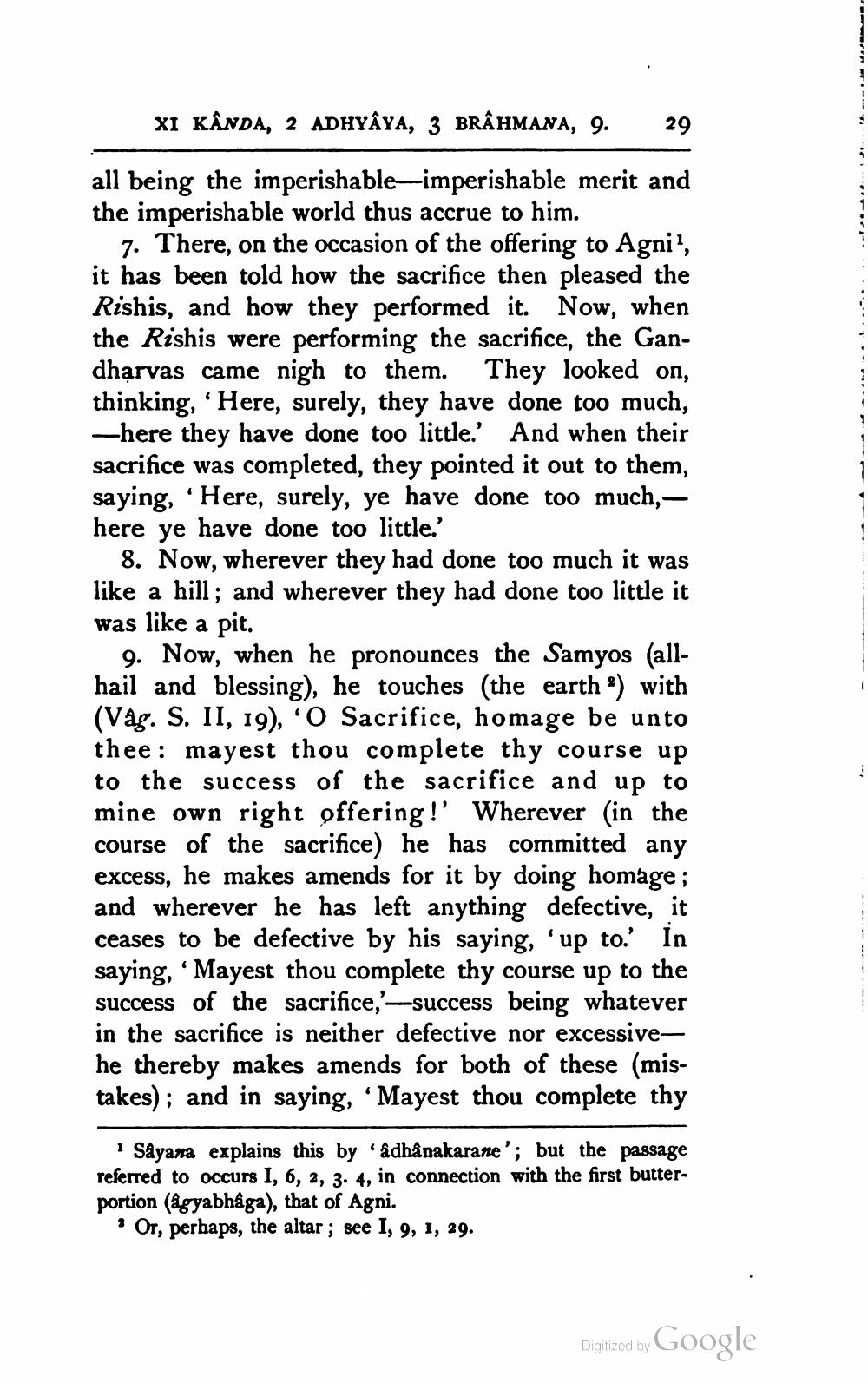________________
XI KÂNDA, 2 ADHYAYA, 3 BRÂHMANA, 9.
29
all being the imperishable-imperishable merit and the imperishable world thus accrue to him.
7. There, on the occasion of the offering to Agni", it has been told how the sacrifice then pleased the Rishis, and how they performed it. Now, when the Rishis were performing the sacrifice, the Gandharvas came nigh to them. They looked on, thinking, 'Here, surely, they have done too much, -here they have done too little.' And when their sacrifice was completed, they pointed it out to them, saying, “Here, surely, ye have done too much, here ye have done too little.'
8. Now, wherever they had done too much it was like a hill; and wherever they had done too little it was like a pit.
9. Now, when he pronounces the Samyos (allhail and blessing), he touches (the earth) with (Vag. S. II, 19), O Sacrifice, homage be unto thee: mayest thou complete thy course up to the success of the sacrifice and up to mine own right offering !'Wherever in the course of the sacrifice) he has committed any excess, he makes amends for it by doing homage ; and wherever he has left anything defective, it ceases to be defective by his saying, 'up to. In saying, “Mayest thou complete thy course up to the success of the sacrifice,'--success being whatever in the sacrifice is neither defective nor excessivehe thereby makes amends for both of these (mistakes); and in saying, "Mayest thou complete thy
Sayana explains this by 'adhânakarane'; but the passage referred to occurs I, 6, 2, 3. 4, in connection with the first butterportion (ágyabhaga), that of Agni.
• Or, perhaps, the altar; see I, 9, 1, 29.
Digitized by Google




